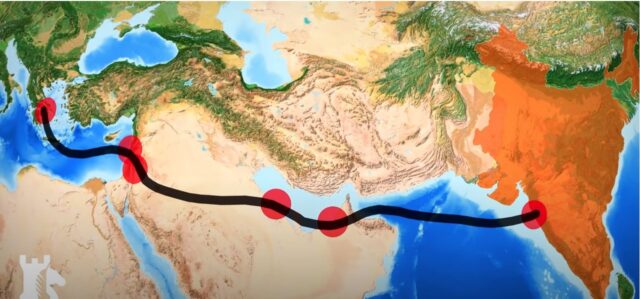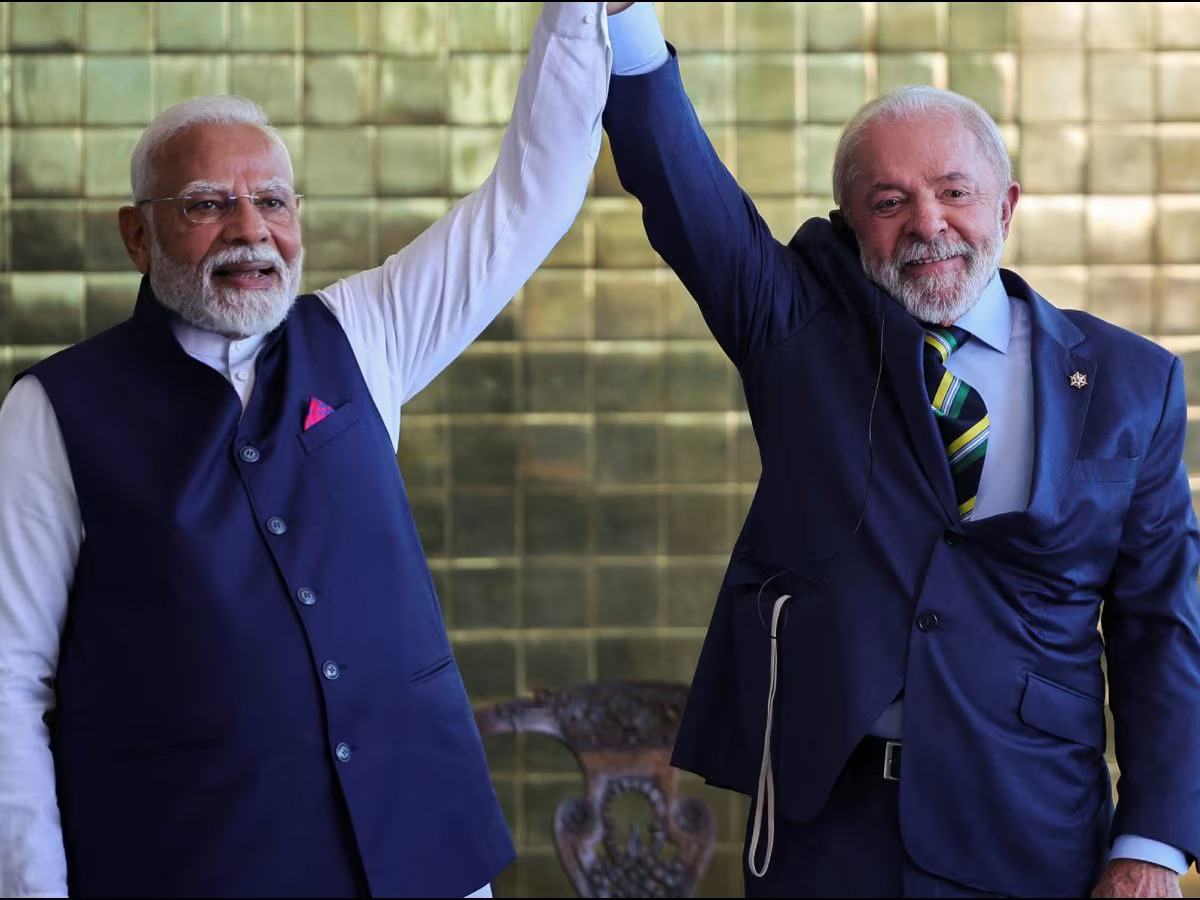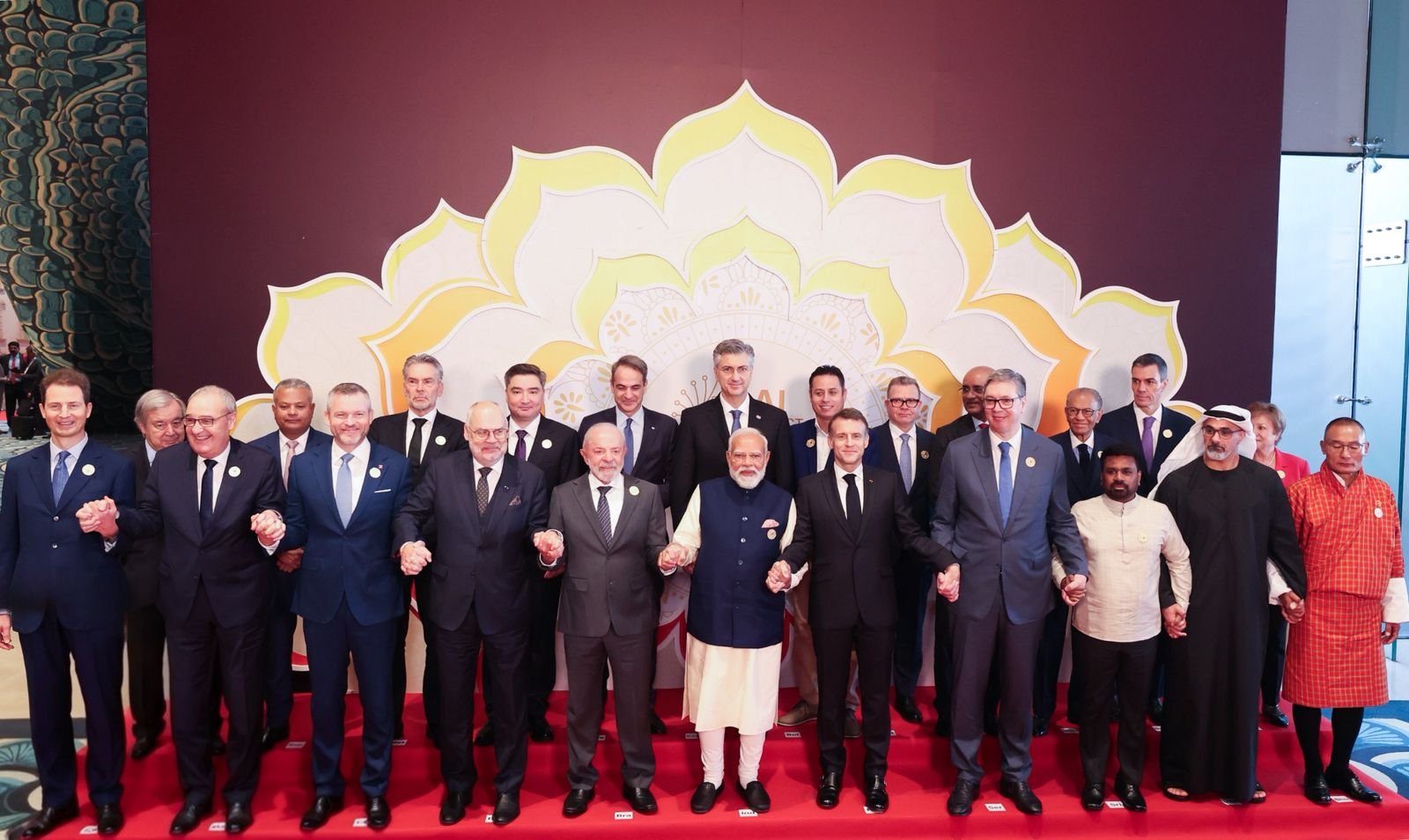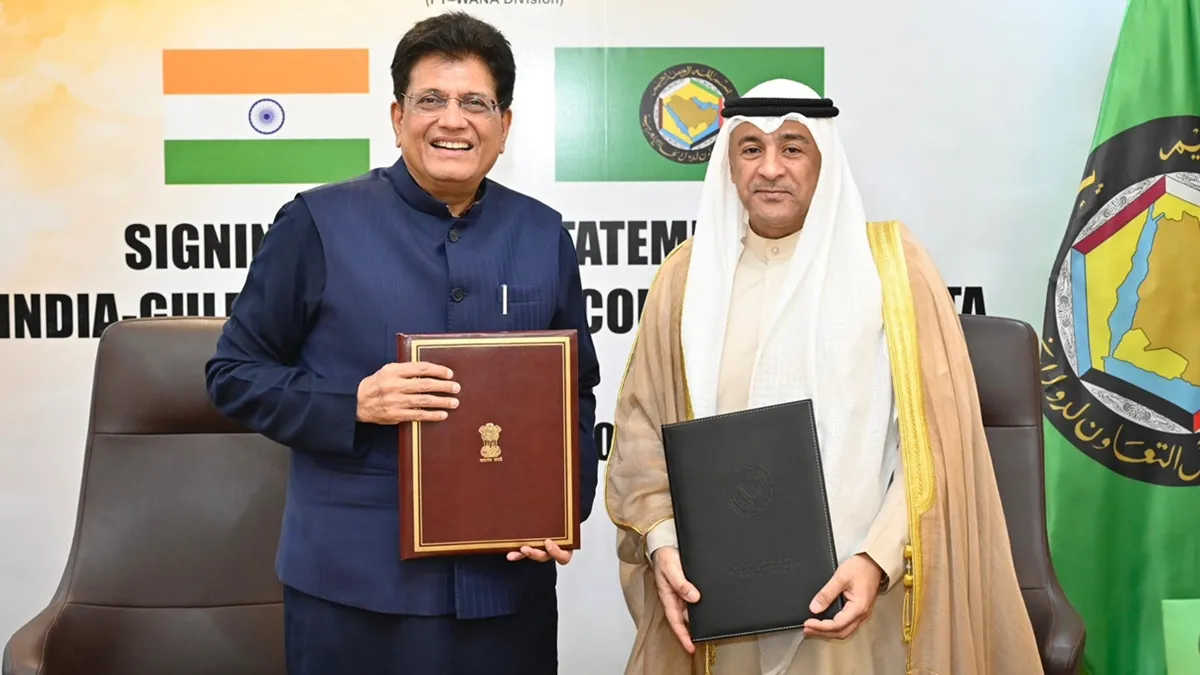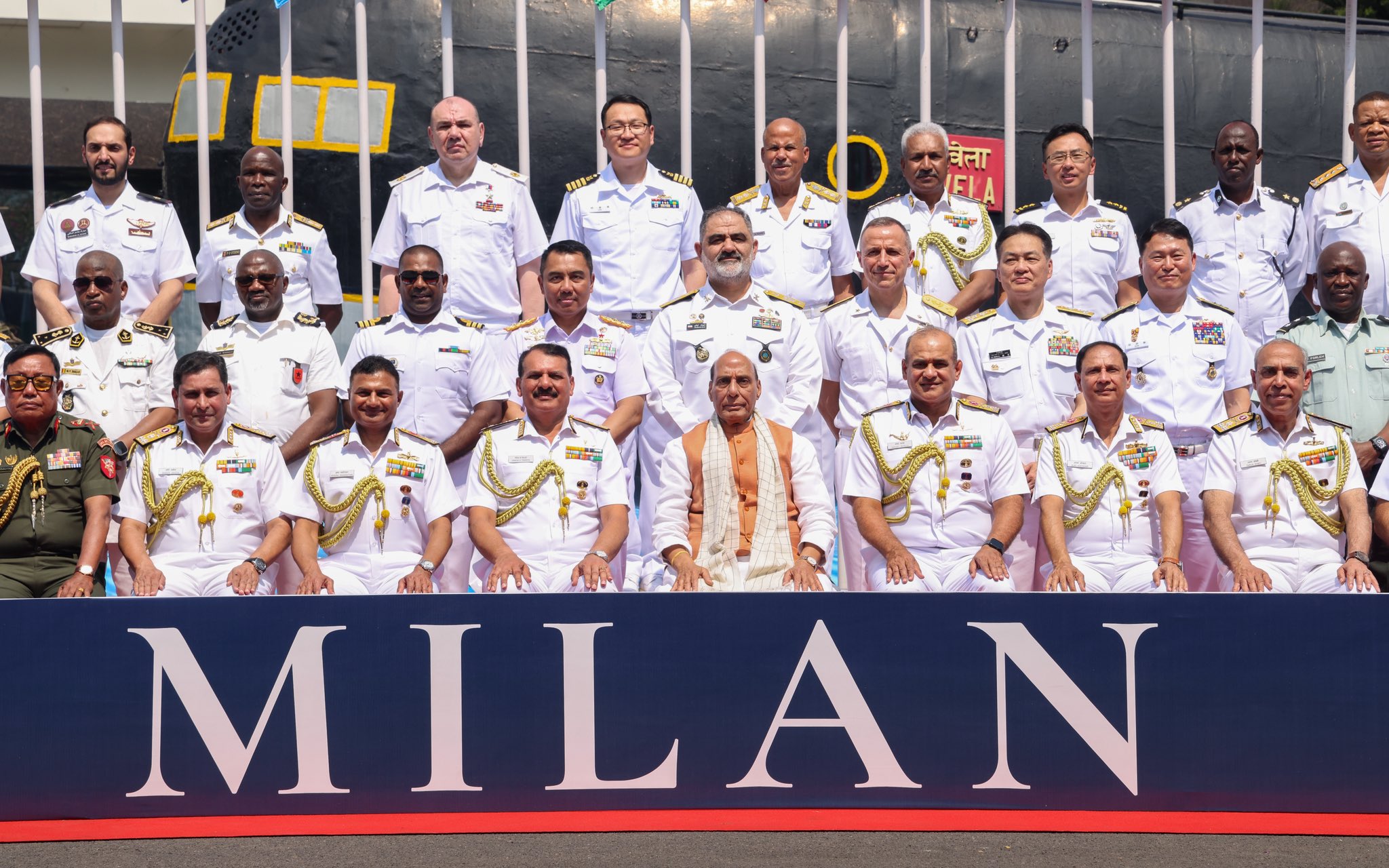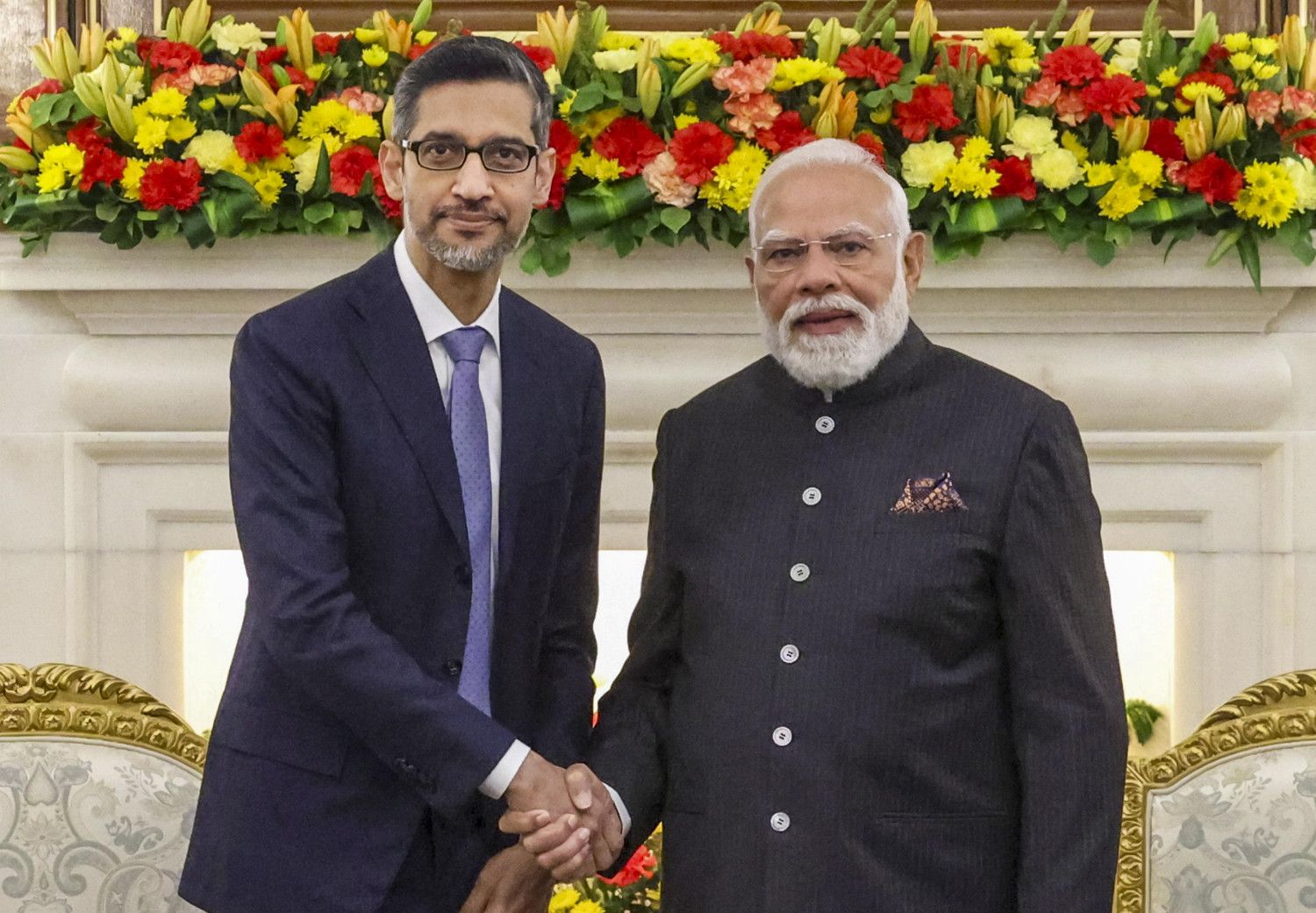While the Belt Road Initiative (BRI) is drawing criticism in some countries, mainly due to rising debts in sovereign nations, experts are looking at the geopolitical relevance of India-Arab-Mediterranean corridor and a possible answer to China’s BRI.
The India-Arab-Mediterranean corridor is thousands of kilometers long multimodal network of road, ship, rail connecting India with Arab countries and Greece (gateway to European markets).
Expanding the transport network will allow quicker transportation of goods from Europe to India. It is expected that reliance on the crowded Suez Canal will be reduced.
While BRI is much bigger, one cannot deny that successful completion of the India-Arab-Mediterranean will be an alternative to the existing supply chain networks. It will mainly help the agricultural sector, energy and technology industries.
The ambitious plan got a fillip from normalization of ties between the UAE and Israel. The aim is to use the ports, railway links in the Gulf region to ship out food items from India to the Middle East and then to Europe. India aims to be the bread basket for the Middle East region. For India, it would also mean transport of petroleum resources reaching India faster than before.
The plan would rely on a rail network between UAE and Israel via Saudi Arabia and Jordan. Israel’s Haifa port will act as the connector with the Mediterranean. Connecting Haifa port with Piraeus port in Greece would mean Indian goods can reach major markets in Europe.
For Greece, this collaboration with Israel will be helpful in stepping up against Turkey’s exploitation of the Mediterranean Sea.
This proposed route will also be an alternative to the International North-South Corridor. India can rely on ports in the UAE instead of Chabahar port in Iran.
Foreign Ministers of India, UAE, Greece, Cyprus, Israel, Saudi Arabia, met at Dubai on the sidelines of 12th Sir Bani Yas Forum in November 2021 to discuss progress on the proposed corridor.
However, it may be noted that such ambitious projects cannot be built over a short period of time. It would depend a lot on India’s push for access in crucial countries such as Saudi Arabia and Jordan. So far, all the major countries in this corridor project are already cooperating with each other in the sphere of economy and trade.
Just to highlight that the three major countries in this project Saudi Arabia, UAE and Israel, already have deep ties with India.
India is part of other ambitious connectivity projects, including Kaladan Multimodal project to connect the ASEAN countries. Likewise, other countries will also have their own set of commitments and alliances with other countries.

